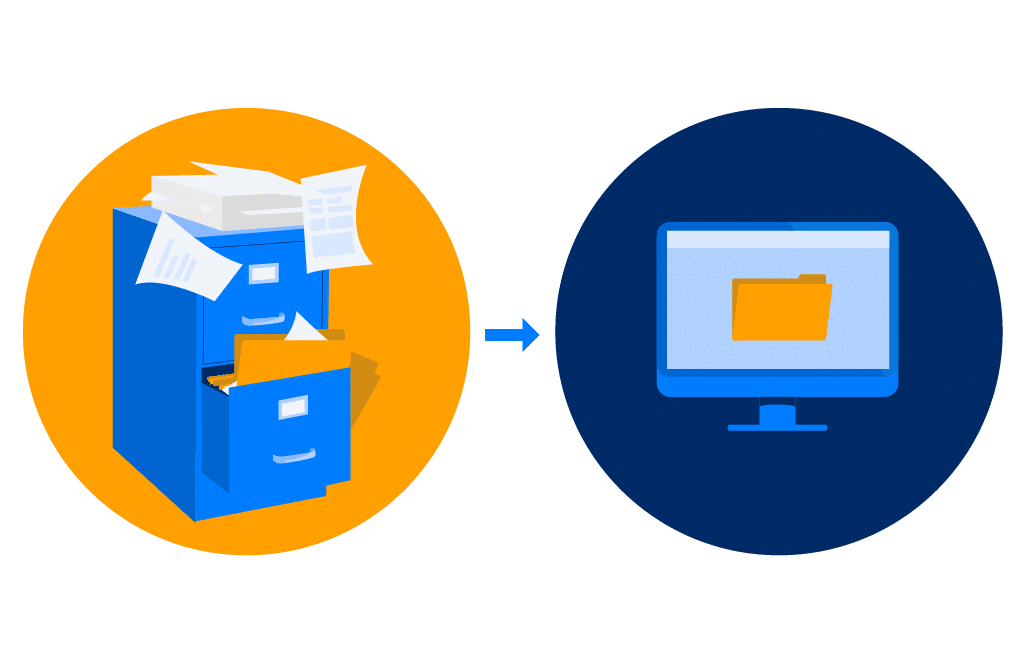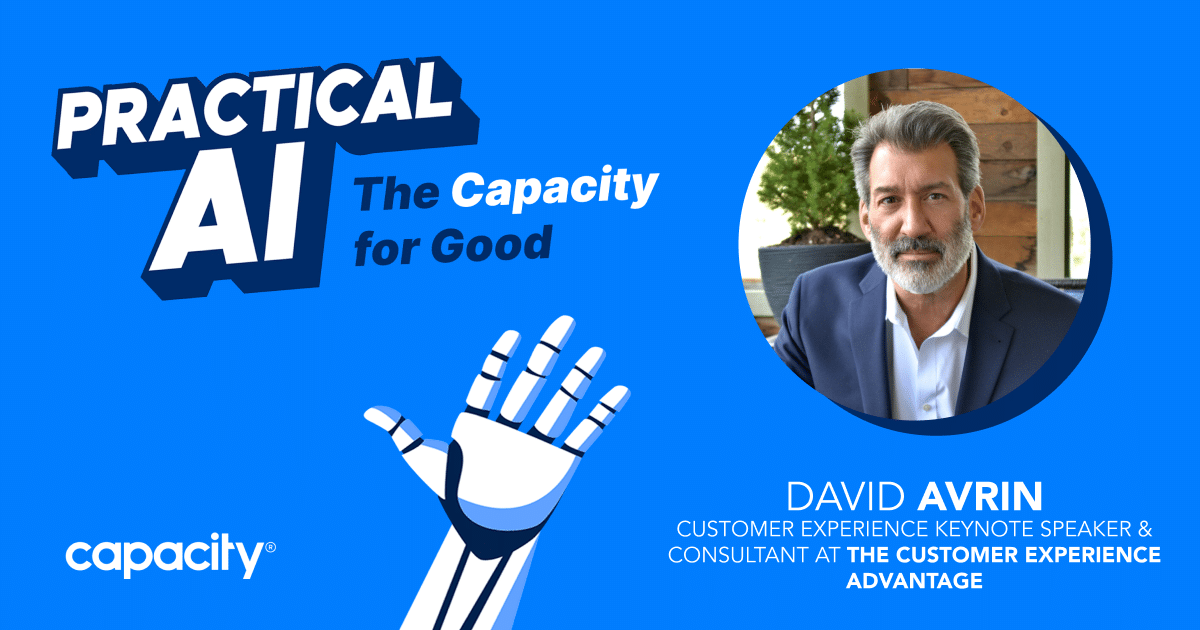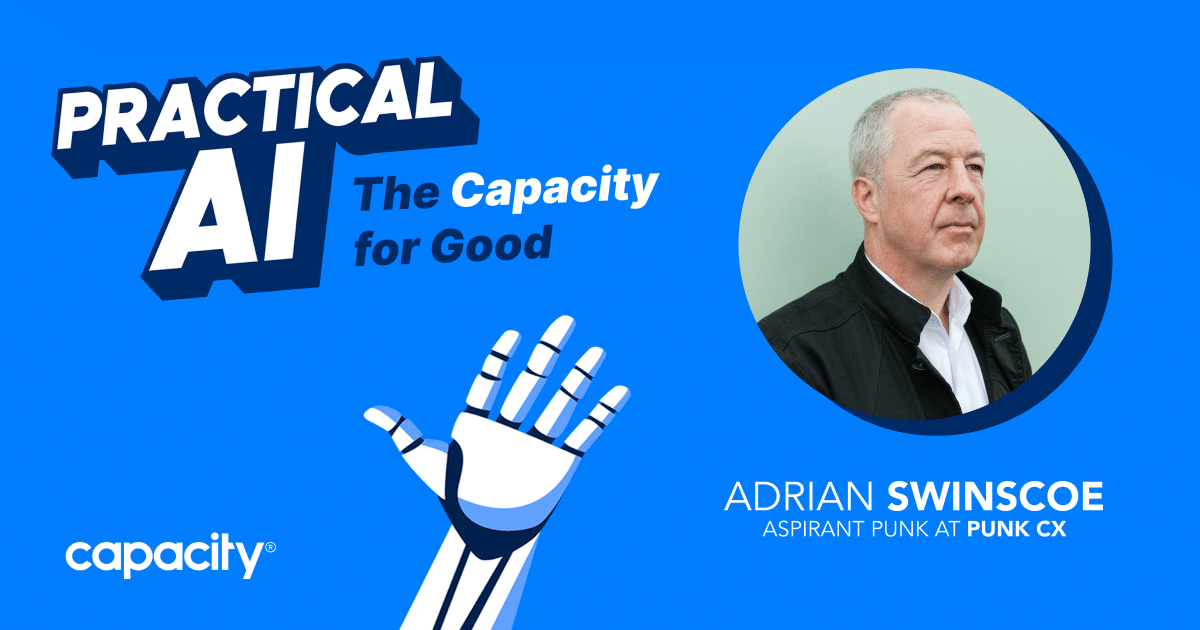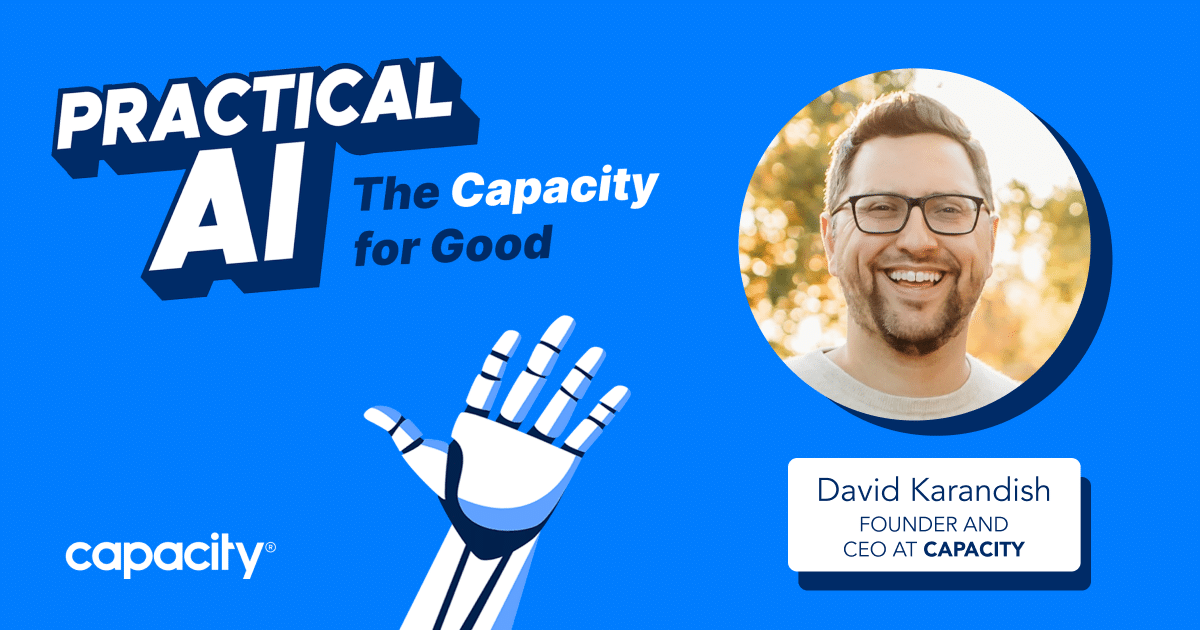Artificial Intelligence (AI) and automation have rapidly become popular in many industries, including healthcare. One of the most fascinating applications of AI and automation in healthcare is using chatbots. Chatbots in healthcare are computer programs designed to simulate conversation with human users, providing personalized assistance and support.
In this article, we will explore how chatbots in healthcare can improve patient engagement and experience and streamline internal and external support.

Streamline Complex Processes Instantly
Capacity’s AI and automation technology can help:
- Answer FAQs anytime, anywhere
- Find relevant documents within seconds
- Give surveys and collect feedback
What is a chatbot in healthcare?
Healthcare chatbots are AI-powered virtual assistants that provide personalized support to patients and healthcare providers. They are designed to simulate human-like conversation, enabling patients to interact with them as they would with a real person. These chatbots are trained on healthcare-related data and can respond to many patient inquiries, including appointment scheduling, prescription refills, and symptom checking.
How are AI chatbots used in healthcare?
AI chatbots are used in healthcare to provide patients with a more personalized experience while reducing the workload of healthcare professionals.
For example, chatbots can schedule appointments, answer common questions, provide medication reminders, and even offer mental health support. These chatbots also streamline internal support by giving these professionals quick access to information, such as patient history and treatment plans.
What can chatbots in healthcare be used for?

Chatbots in healthcare can be used for a wide range of purposes. Here are some examples:
- Appointment scheduling: Patients can use chatbots to schedule appointments with healthcare providers, eliminating the need for phone calls or in-person visits.
- Symptom checking: Chatbots can ask patients questions about their symptoms and provide recommendations for the next steps, such as seeking medical attention or self-treatment.
- Medication management: Chatbots can remind patients to take their medication on time and provide information on dosage and side effects.
- Mental health support: Chatbots can provide patients with emotional support and guidance on managing mental health issues like depression and anxiety.
- Patient education: Chatbots can provide patients with educational resources on nutrition and exercise.
- Health monitoring: Chatbots can track patient data, such as blood pressure and glucose levels, and provide feedback on improving health outcomes.
- Insurance inquiries: Chatbots can assist patients with insurance-related questions like coverage and claims.
These are just a few examples of how chatbots can be used in healthcare. The possibilities are endless, and as technology continues to evolve, we can expect to see more innovative uses of bots in the healthcare industry.
The Ethics of Using Chatbots in Healthcare
As with any emerging technology, using chatbots in healthcare raises critical ethical questions that must be carefully considered. Here are some of the key ethical considerations when it comes to chatbots in healthcare:
Patient privacy
Chatbots require access to patient data to provide personalized support. As such, there are concerns about how chatbots collect, store, and use patient data. Healthcare providers must ensure that privacy laws and ethical standards handle patient data.
Informed consent
Patients have the right to make informed decisions about their healthcare. When using chatbots in healthcare, it is essential to ensure that patients understand how their data will be used and are allowed to opt out if they choose.
Accuracy and reliability
Chatbots must be accurate and reliable to provide adequate support to patients. Healthcare providers must ensure that chatbots are regularly updated and maintained for accuracy and reliability.
Human interaction
While chatbots can provide personalized support to patients, they cannot replace the human touch. Healthcare providers must ensure that chatbots are used in conjunction with, and not as a replacement for human healthcare professionals.
Top Benefits of Chatbots in Healthcare

Chatbots in healthcare offer several benefits for both patients and providers. Here are the top benefits:
Improved patient engagement
Chatbots provide patients with a more personalized experience, making them feel more connected to their healthcare providers. Chatbots can help patients feel more comfortable and involved in their healthcare by conversationally engaging with them.
Increased efficiency
Chatbots can handle a large volume of patient inquiries, reducing the workload of healthcare professionals and allowing them to focus on more complex tasks. This increased efficiency can result in better patient outcomes and a higher quality of care.
24/7 availability
Chatbots can be accessed anytime, providing patients support outside regular office hours. This can be particularly useful for patients requiring urgent medical attention or having questions outside regular office hours.
Cost-effective
Chatbots are a cost-effective alternative to hiring additional healthcare professionals, reducing costs. By automating routine tasks, AI bots can free up resources to be used in other areas of healthcare.
Improved patient outcomes
Chatbots can help patients manage their health more effectively, leading to better outcomes and a higher quality of life. These bots can help patients stay on track with their healthcare goals and manage chronic conditions more effectively by providing personalized support and assistance.
Chatbots and telemedicine: A perfect match?
Chatbots and telemedicine are indeed a perfect match. Telemedicine uses technology to provide healthcare services remotely, while chatbots are AI-powered virtual assistants that provide personalized patient support. They offer a powerful combination to improve patient outcomes and streamline healthcare delivery.
Here are some of how chatbots and telemedicine can work together:
- Remote patient monitoring: Chatbots can collect data from patients, such as vital signs or symptom tracking, which can be used to monitor their health remotely. Healthcare professionals can use this data to provide personalized care and intervene.
- Patient education and support: Chatbots can provide patients with educational resources and support remotely, helping them manage their health and well-being. This can be particularly useful for patients who live in rural areas or have mobility issues.
- Appointment scheduling: Chatbots can schedule telemedicine appointments, providing patients with a convenient and accessible way to receive healthcare services.
- Medication management: Chatbots can remind patients to take their medication and provide information on dosage and side effects remotely, reducing the need for in-person visits.
- Mental health support: Chatbots can provide emotional support and guidance on managing mental health issues, such as depression and anxiety, remotely.
By combining chatbots with telemedicine, healthcare providers can offer patients a more personalized and convenient healthcare experience. Patients can receive support and care remotely, reducing the need for in-person visits and improving access to healthcare services.
Overcoming Challenges in Implementing Chatbots in Healthcare
While chatbots offer many benefits for healthcare providers and patients, several challenges must be addressed to implement them successfully.

Here are some of the key challenges and how they can be overcome:
Resistance to change
Implementing chatbots in healthcare requires a cultural shift, as many healthcare professionals may resist using new technologies. Providers can overcome this challenge by providing staff education and training and demonstrating the benefits of chatbots in improving patient outcomes and reducing workload.
Data integration
Chatbots require access to patient data to provide personalized support. However, healthcare data is often stored in disparate systems that are not integrated. Healthcare providers can overcome this challenge by investing in data integration technologies that allow chatbots to access patient data in real-time.
User experience
Chatbots must be designed with the user in mind, providing patients a seamless and intuitive experience. Healthcare providers can overcome this challenge by working with experienced UX designers and testing chatbots with diverse patients to ensure that they meet their needs and expectations.
Maintenance and updates
Chatbots must be regularly updated and maintained to ensure their accuracy and reliability. Healthcare providers can overcome this challenge by investing in a dedicated team to manage bots and ensure they are up-to-date with the latest healthcare information.

Streamline Complex Processes Instantly
Capacity’s AI and automation technology can help:
- Answer FAQs anytime, anywhere
- Find relevant documents within seconds
- Give surveys and collect feedback
Best Platform for Creating Healthcare Chatbots
Capacity is an AI-powered support automation platform that provides an all-in-one solution for automating support and business processes. It connects your entire tech stack to answer questions, automate repetitive support tasks, and build solutions to any business challenge.
Capacity’s conversational AI platform enables graceful human handoffs and intuitive task management via a powerful workflow automation suite, robust developer platform, and flexible database that can be deployed anywhere.
Here are some key features of Capacity that make it the best platform for creating healthcare chatbots:
- Top-notch security: Capacity is GDPR, CCPA, HIPAA, and SOC 2 compliant.
- All-in-one helpdesk: Capacity’s AI-powered chatbots can answer more than 90% of frequently asked questions, reducing the workload of healthcare professionals and allowing them to focus on more complex tasks.
- Low-code workflows: Capacity’s low-code workflows can automate tedious processes and tasks, increasing productivity in cross-functional healthcare teams.
- User-friendly knowledge base: Capacity’s platform includes a user-friendly knowledge base that empowers employees to access healthcare-related information.
- Conversational interface: Capacity enables patients to interact with chatbots naturally and intuitively, providing personalized support and assistance.
Want to see Capacity in action? Try it for free today!





